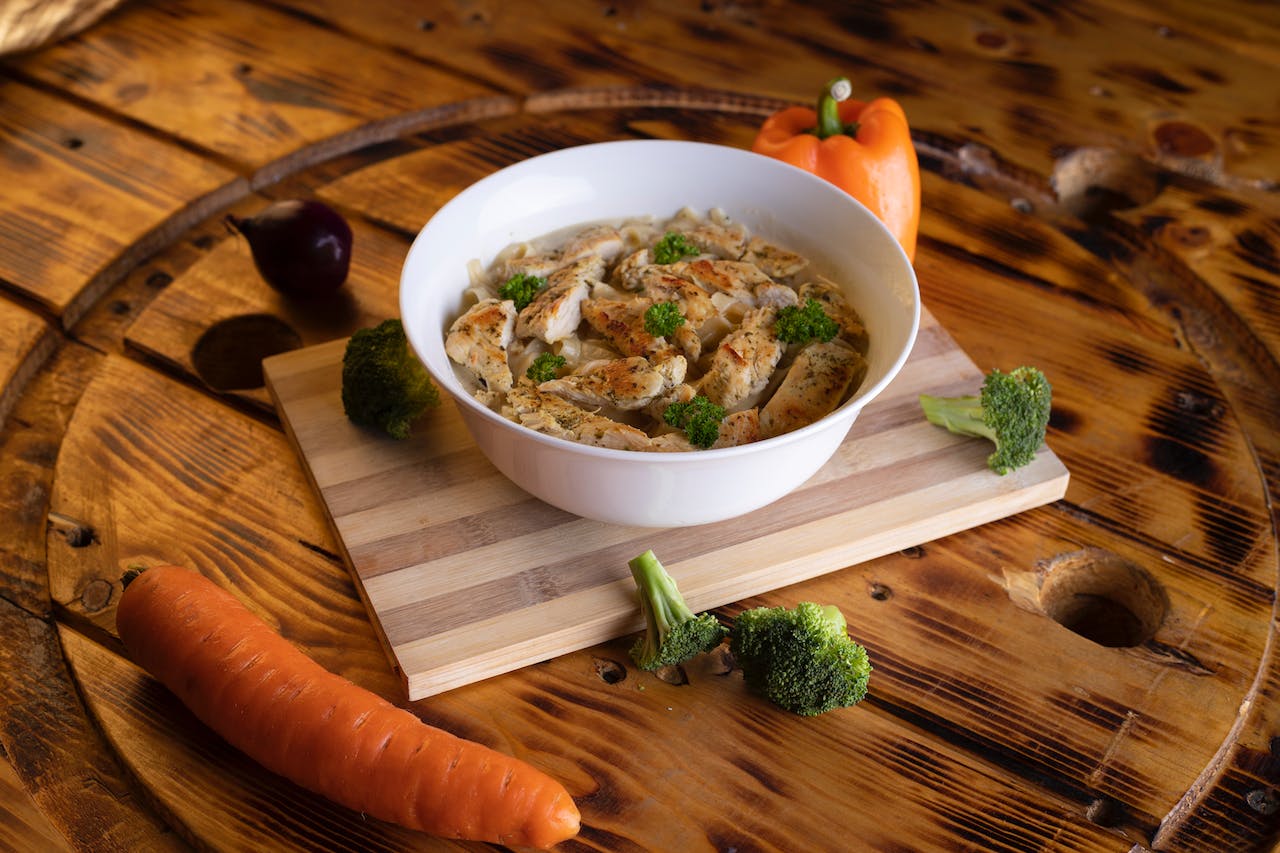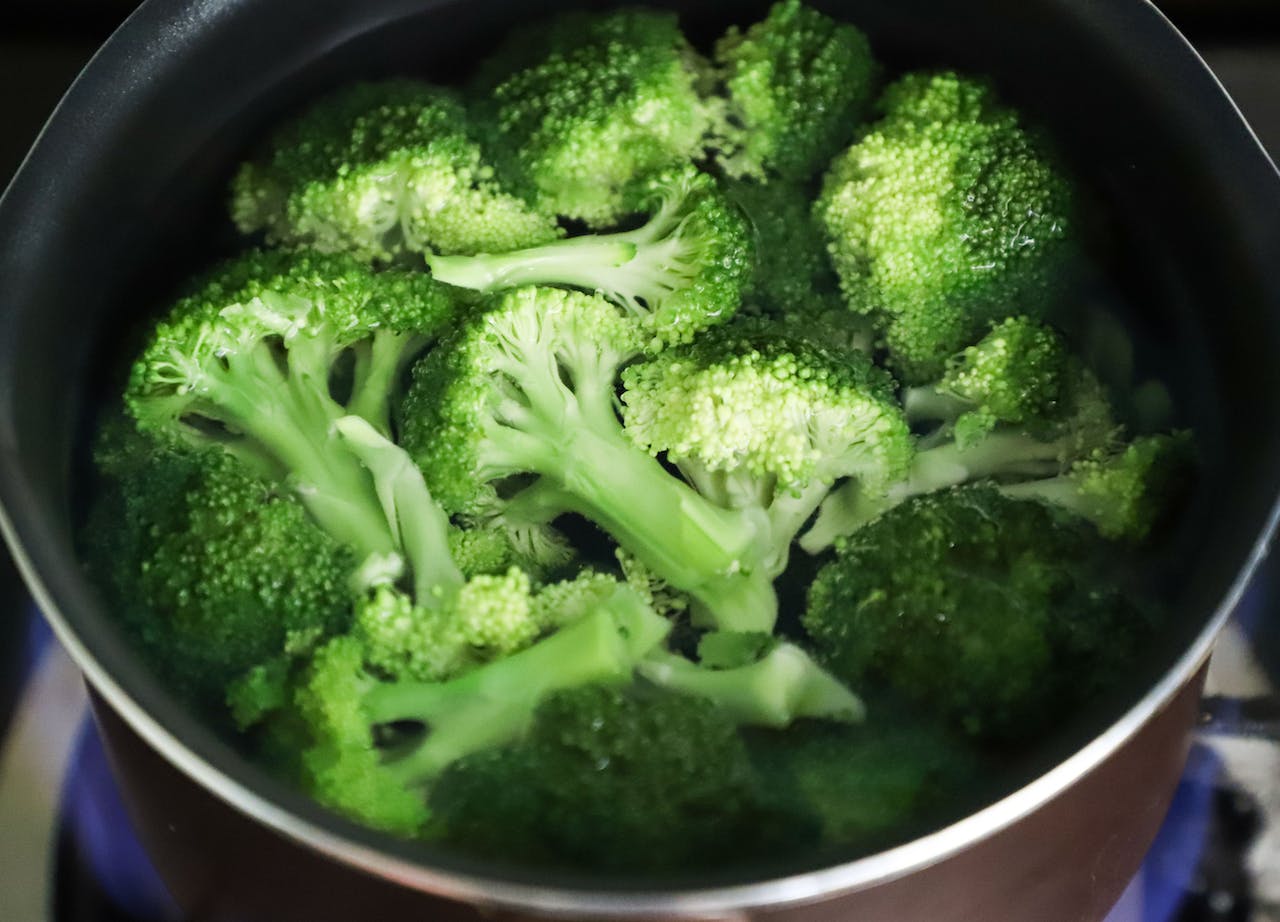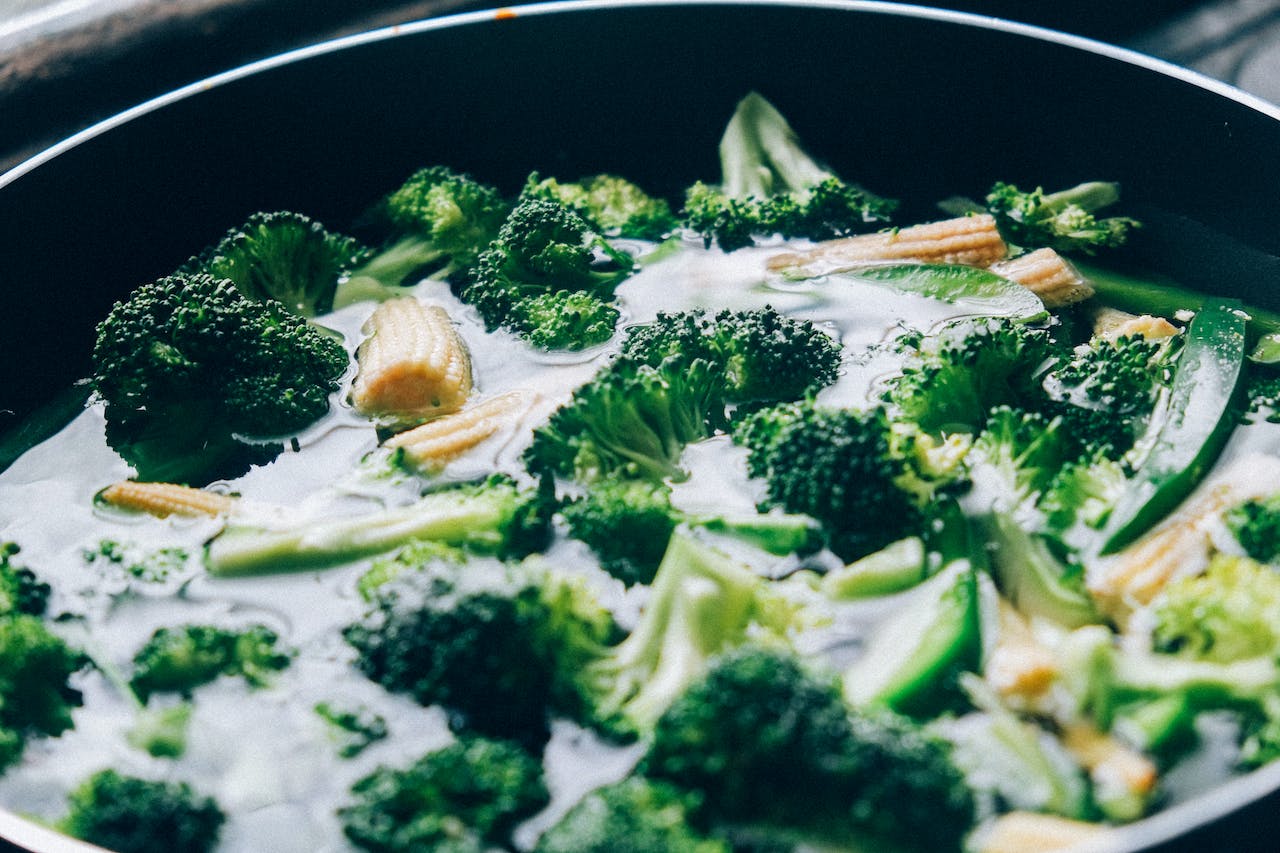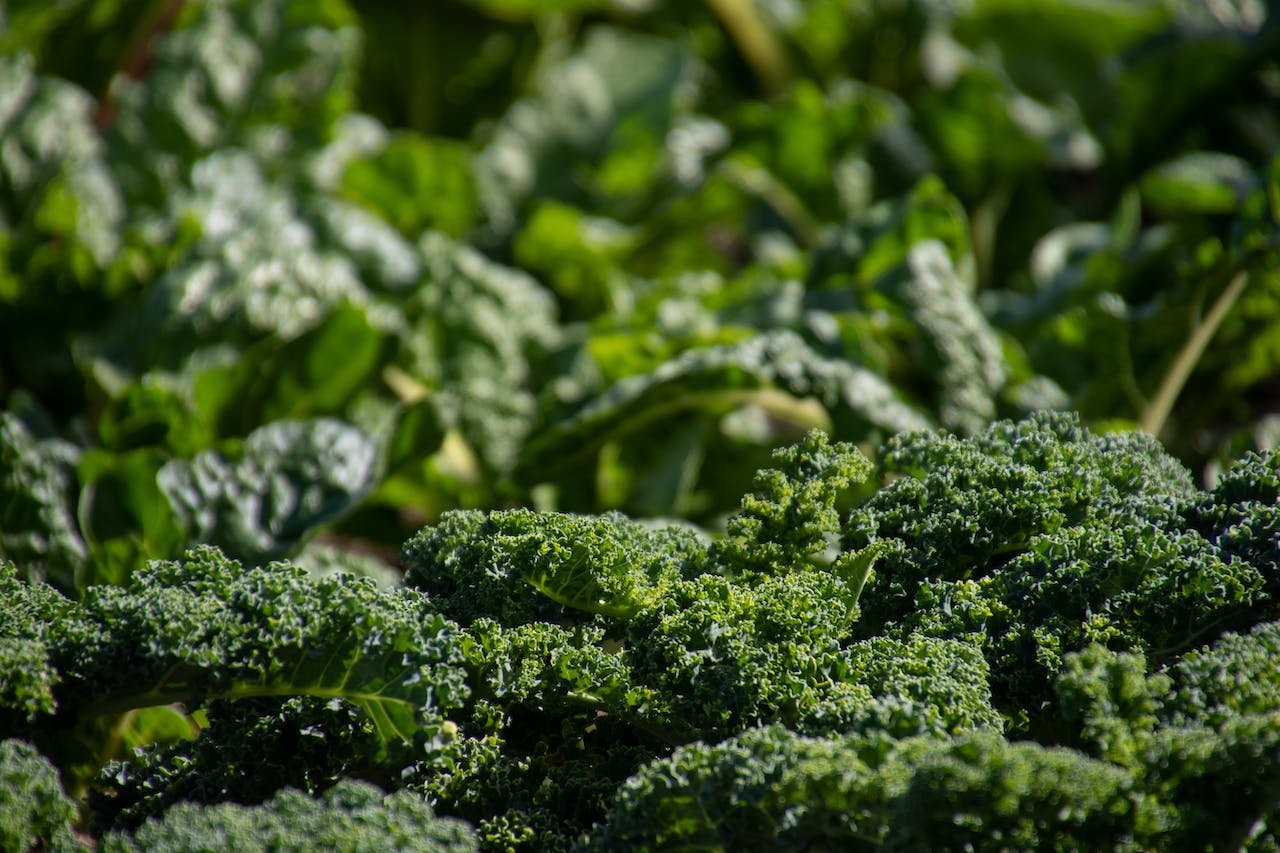
How to make frozen broccoli taste good? It's a common misperception that heating frozen broccoli produces a tasteless dish of broccoli, but it doesn't have to. You may choose what will work best for you by following this recipe for cooking frozen broccoli. You'll be persuaded that having a selection of frozen veggies in your freezer is worthwhile.
Why Roast Frozen Broccoli?
In addition to being often less costly than fresh broccoli, frozen broccoli comes pre-washed and diced, saving you a ton of prep time.
Additionally, frozen broccoli requires less time to roast than fresh broccoli since it has already been partly cooked by blanching before freezing. It pairs well with almost everything and is the most straightforward side dish ever!
Convenience
This is the main advantage. The broccoli is ready; there's no need to wash, dry, and slice it up. Just open the bag. It drastically reduces the amount of prep time needed for those hectic nights.
Inexpensive
Generally, frozen broccoli is less expensive than fresh, depending on the season.
Stays Fresher Longer
Have you ever bought a head of broccoli, forgotten to cook it, and then had to discard it? Here's another instance when frozen is preferable if kept correctly. It may last 8 to 12 months in the freezer.
Nutritious
The consensus is that frozen veggies are never superior to fresh ones. However, frozen food is often just as delicious as fresh food. This is because fresh fruit is often selected before it ripens, carried to the store for days before being bought, and then stored in your refrigerator until you prepare it.
In contrast, frozen veggies are picked and frozen at the pinnacle of ripeness. While the nutrients in frozen veggies are retained over time, those in fresh vegetables degrade with time.
How To Make Roasting Broccoli?
Roasting broccoli in the oven is the most incredible method to prepare frozen broccoli. The broccoli becomes crispy instead of limp, watery, and mushy, making it much more delectable than broccoli that has been cooked or steamed!
Broccoli roasting is the finest, so if you have yet to try it, please do. But fear not, roasted frozen broccoli is simple to make and takes very little preparation. And before roasting the broccoli, there's no need to defrost it!
Roast
If you want to eat it as a side dish, this is one of the finest ways to prepare it. The broccoli will still taste good and retain its bite even if it won't become as crispy as freshly roasted broccoli! Because it's simpler for toddlers to chew, you may discover that they prefer this to fresh broccoli.
- Turn the oven on to 425°F. For easier cleanup, line a large baking sheet with parchment paper. These sheet pans are my absolute fave! They transmit heat evenly and effectively and are pretty durable.
- Be careful not to overcrowd the pan while adding the frozen broccoli to the baking sheet in a single layer. After putting it in the oven, roast for ten minutes. This additional step will help your broccoli become nice and crisp and browned by helping to remove excess water.
- Take out of the oven and cut any big florets in half so that each piece is around the same size. Add your preferred seasonings and oil. Using tongs, toss until broccoli is well covered.
- Put back in the oven and continue to roast for ten more minutes. For an additional crispy and brown texture, broil for about five minutes over high heat.
- To truly make it pop, add a sprinkle of nutritional yeast or parmesan cheese!
How To Sauté Frozen Broccoli?
In a large pan, heat about 2 tablespoons of olive oil over medium-high heat. Then, dump the frozen broccoli box into the pan (remember, there's no need to thaw first). Stir the broccoli in the pan just long enough to coat it with oil.
Add a little pinch of salt, garlic, and basil. Stir-fry the broccoli, tossing often, for about 5 to 8 minutes or until it is crisp-tender and somewhat browned. Add the parmesan and stir-fry for the last few minutes of cooking until the food is somewhat crispy and browned.
Finally, pour the juice of half a lemon over everything before serving. Before serving, feel free to add some lemon zest and a drizzle of extra virgin olive oil.
Essential Tips For Making The Perfect Roasted Frozen Broccoli
- Think about how big your florets are. Broccoli florets that are frozen vary significantly in size, with some being chopped smaller than others. You usually only need to roast your broccoli florets for three to five minutes after seasoning them with salt and oil if they are pretty tiny. Just oversee them to avoid burning your broccoli.
- Avoid omitting the dry roast. This aids in reducing the amount of water in the frozen broccoli before flavoring it.
- Your florets should be open on the baking sheet. If you pack them in, your florets will steam rather than roast. Use two baking sheets if your current one isn't large enough.
Broccoli Nutrition
Regarded as one of the healthiest vegetables, broccoli tastes great as a side dish in casseroles, soups, and stir-fries or eaten raw paired with a dip. Broccoli is nutrient-dense, whether eaten fresh or cooked, while various cooking techniques limit the amount of flavonoids.
Carbs
A cup of raw, chopped broccoli has just 31 calories, 6 grams of carbs, and 1.5 grams of sugar. Broccoli is a heart-healthy, satisfying dietary option since around 2.4 grams of its carbs come from fiber. The glycemic index calculates a food's potential impact on blood sugar levels. Broccoli has a glycemic index (GI) of 10.
Due to its low glycemic index, broccoli has little influence on blood sugar levels. Keep in mind that the GI only shows how a meal affects blood sugar when consumed on its own. The GI is altered when a food is consumed alongside another food. For example, increasing fat or fiber will decrease the GI by slowing down the release of blood glucose.
Fat
Broccoli is devoid of cholesterol and has very little fat. Alpha-linolenic acid (ALA), a kind of omega-3 fatty acid, is present in trace amounts in it, nevertheless. Two cups of broccoli provide around 0.5 grams of this omega-3 fatty acid.
Protein
At 2.5 grams per cup, broccoli packs a hefty protein punch for a vegetable. However, to reach your daily requirements, you need also to incorporate other forms of protein in your diet.
Minerals And Vitamins
Broccoli is loaded with nutrients and vitamins. With over 81 mg or over 135% of your daily requirements, of immune-boosting vitamin C, it's a great source of the vitamin. It is also a great source of vitamin K, which is necessary for healthy bones and the healing of wounds.
One cup of broccoli provides you with 116% of your daily recommended consumption. Broccoli contains minerals such as phosphorus, potassium, and manganese. It's also a rich source of vitamin A, manganese, potassium, and other B vitamins and an exceptional source of B vitamin folate.
Calories
For every cup (91g) of raw, chopped broccoli, there are 31 calories in broccoli. Broccoli has 27% protein, 7% fat, and 66% carbohydrates in its calories. Broccoli is a low-calorie, high-volume meal.
Frequently Asked Questions
Does Frozen Broccoli Taste As Good As Fresh?
Broccoli reigns supreme when it comes to frozen veggies, which are the hippest alternative for making meals at home. Broccoli frozen is as delicious as it is fresh.
Should I Thaw Frozen Broccoli Before Stir-frying?
No, thawing the veggies before cooking is not necessary. Simply toss them into your blazing-hot pan.
Is Frozen Broccoli Mushy When Cooked?
The ice crystals within frozen broccoli rapidly melt and release steam when the vegetable is microwaved. The florets may ultimately burst, releasing their moisture as a result of the steam that builds up inside of them. This might lead to the broccoli being overcooked and mushy.
What Is The Healthiest Way To Eat Frozen Broccoli?
After heating a bag of frozen broccoli for the recommended amount of time (typically five minutes), customize it to your liking. It works well with a generous sprinkle of Parmesan cheese, but fresh ginger and a drizzling of sesame oil also work well.
Can You Fry Frozen Broccoli?
Frozen broccoli cooks more quickly than fresh broccoli, so watch out not to overcook it. Six to eight minutes should be enough. Keep in mind that while making a stir-fry, you should only use fresh or frozen veggies.
How Can I Make Frozen Vegetables Taste Better?
When it comes to frozen veggies, your buddies are acidic substances (like lemon or vinegar), fats (like butter and olive oil), spicy condiments (like chile flakes or hot sauce), savory foods (like cheese, bacon, and nuts), and fresh and dried herbs.
Why Is My Frozen Broccoli Soggy?
Broccoli will already be soggy if you just defrost it to room temperature without cooking it. No cooking technique exists that can restore its crispness.
Conclusion
This article aims to explain how to make frozen broccoli taste good. One convenient and affordable freezer staple is frozen vegetables. Since they are frozen at their freshest, they allow you to enjoy veggies that aren't in season. Plus, they come entirely prepared, so all you have to do is throw them into dishes without any chopping. On the other hand, frozen vegetables are blanched before freezing and are often recognized for having a little mushy texture upon cooking.




